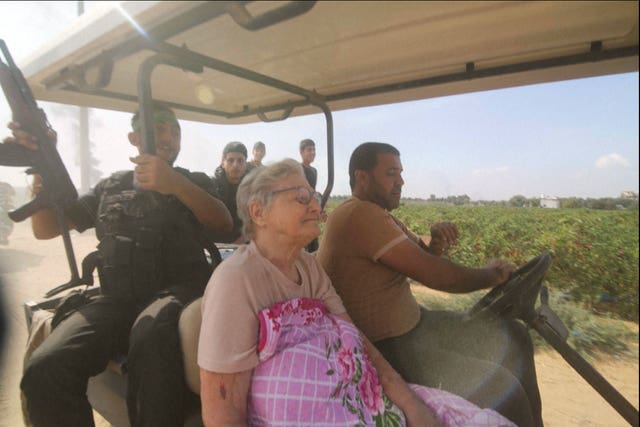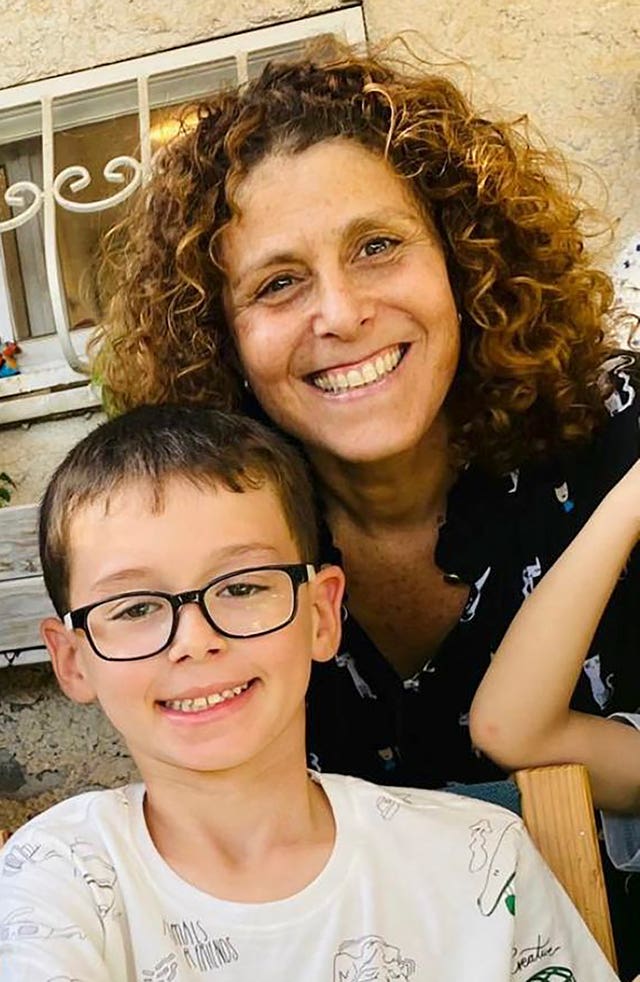‘Happiness locked up in grief’ as Israelis celebrate return of hostages

Yaffa Ada (Hostages and Missing Persons Families Forum via AP)
Family and friends of Israeli hostages released by Hamas have celebrated the return of their relatives as the militant group released 24 people it had held for weeks in the Gaza Strip.
A crowd of Israelis gathered in a plaza dubbed Hostages Square in Tel Aviv to mark releases as part of a ceasefire swap deal.
The freed Israelis included nine women and four children aged nine and under. They were taken to hospitals in Israel to be reunited with their families.

Yael Adar spotted her mother, 85-year-old Yaffa Adar, in a TV newscast of the release and was cheered to see her walking.
“That was a huge concern, what would happen to her health during these almost two months,” she told Israel’s Channel 12.
But Yael Adar’s 38-year-old son, Tamir Adar, remains in captivity. Both were kidnapped on October 7 from Kibbutz Nir Oz.
“Everyone needs to come back. It’s happiness locked up in grief,” said Ms Adar.
The hostages included multiple generations. Nine-year-old Ohad Munder-Zichri was freed along with his mother Keren Munder and grandmother Ruti Munder.

The fourth-grader was abducted during a holiday visit to see his grandparents at the kibbutz where about 80 people — nearly a quarter of all residents of the small community — are believed to have been taken hostage.
Hours later, 24 Palestinian women and 15 teenagers held in Israeli prisons in the occupied West Bank and east Jerusalem were freed.
In the West Bank town of Beituna, hundreds of Palestinians poured out of their homes to celebrate, honking horns and setting off fireworks that lit up the night sky.
“As a Palestinian, my heart is broken for my brothers in Gaza, so I can’t really celebrate,” said Abdulqader Khatib, a UN worker whose 17-year-old son, Iyas, was freed.
“But I am a father. And deep inside, I am very happy.”
Iyas had been taken last year into “administrative detention,” without charges or trial and based on secret evidence. Israel often holds detainees for months without charges. Most of those who are tried are put before military courts that almost never acquit defendants and often don’t follow due process, human rights groups say.












